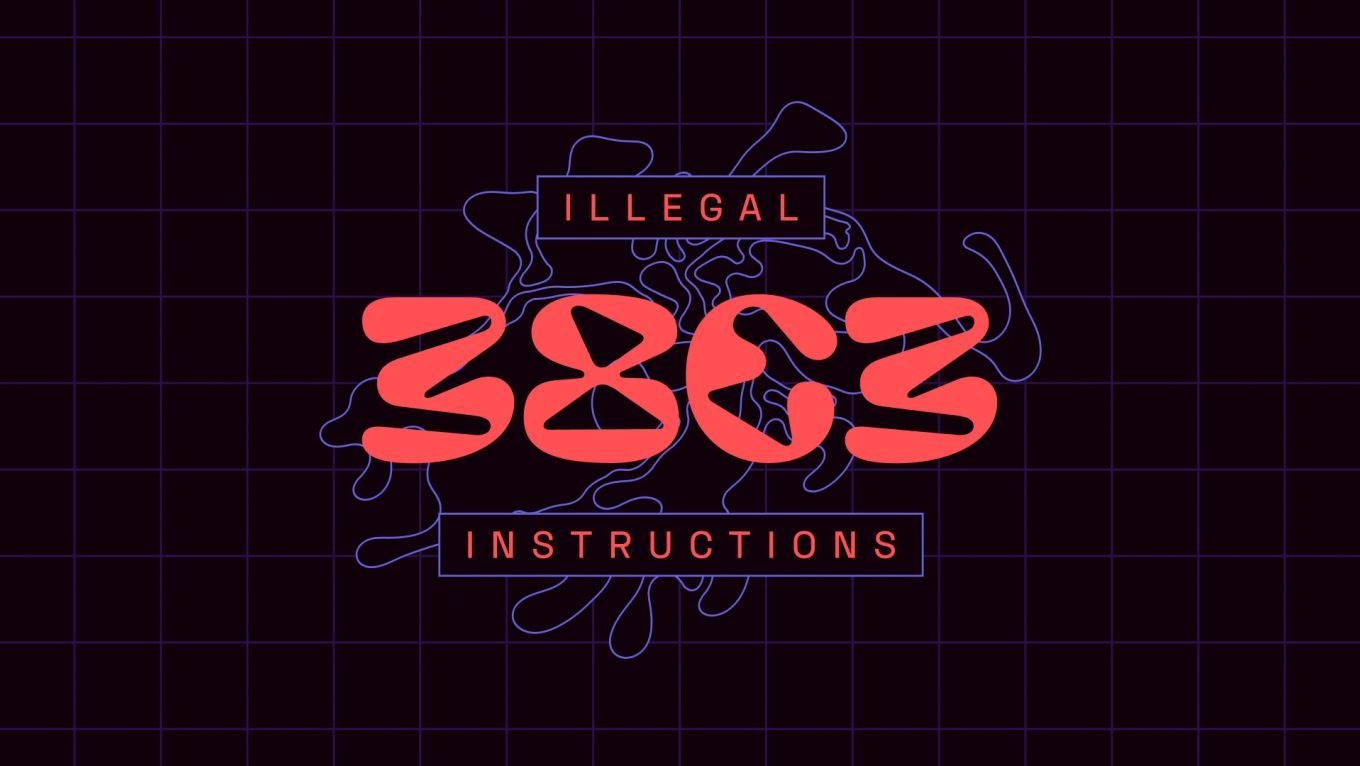Ethics, Society & Politics
A policy black hole. How Europol and Frontex anticipated their high tech future and why this matters to you.
This is the story of how a group of journalists and researchers started examining how the transformative introduction of novel technologies was reshaping the policy priorities of EU's law enforcement agencies. Very early on, this was like diving deep into the ocean without an underwater flashlight. And it didn't get much easier with time.
What are the risks for civil liberties and privacy that lie in the dark while this agenda is unfolding and how hard is it to make them more transparent?
Four years ago, a rather small group of complicated individuals set to explore why Europol was so interested in gathering and keeping the data of people even if they were not directly linked with criminal investigations. And why it was prepared to go to war with the EU's data protection watchdog over the issue. They wanted to keep everything and for as long as they could. The only problem was that at the time this was not exactly legal. Politicians would fix that afterwards but questions about the priorities of the agency had emerged and would stay. This is how an investigation into the EU's law enforcement agencies (Europol/Frontex) kick started, trying to understand what the agenda of the institutions in question was and how it shaped their approach to novel technologies introduced into the work of policing. Many complicated things happened since then which brought the spotlight over the effort of the EU border agency to introduce an indiscriminate data retention system for migrants while circumventing basic data protection safeguards, and then also over the formation of an alliance supporting the Commission's CSAM regulation and lately towards the experimentation of Europol with automated aspects of police work. What was common over all these cases was the opacity that clothed developments which made impossible to see the shape of things to come.
The presentation will explain how the investigation has unfolded, the challenges it was met with when attempting to access information, the push-back and impact caused by publications and what are the lessons learned from the experience of attempting to analyse and journalistically scrutinize some of the EU's most introvert institutions.
Additional information
| Live Stream | https://streaming.media.ccc.de/38c3/zigzag |
|---|---|
| Type | Talk |
| Language | English |
More sessions
| 12/27/24 |
Vor einem Jahr veröffentlichte Correctiv die Recherche “Geheimplan gegen Deutschland”, die ein geheimes Treffen von Rechtsextremen, AfD-Funktionären und CDU-Mitgliedern enthüllte. Diese Enthüllung führte zu massiven Demonstrationen, während rechtsextreme Gruppen versuchten, das Geschehen zu relativieren. Die politische Reaktion blieb jedoch verhalten, und die AfD setzte die demokratischen Parteien weiter unter Druck. In diesem Vortrag gibt Jean Peters, leitender Reporter der Recherche, ...
|
| 12/27/24 |
„Um nach diesem Begriff zu suchen, dich auf dieser Website anzumelden oder dieses Video anzuschauen, halte bitte deinen Personalausweis bereit, damit wir dein Alter überprüfen können.“ Solche Aufforderungen könnten uns in Zukunft häufiger begegnen, denn immer mehr Websites wollen unser Alter wissen. Doch woher kommt dieses Interesse und ist das eigentlich zulässig? Gemeinsam setzen wir die Datenschutzbrille auf und gehen folgenden Fragen auf den Grund: Welche Methoden der ...
|
| 12/27/24 |
On 23 October 2019 peaceful activist Frank van der Linde found out the Dutch Police was associating him with terrorism to other countries' law enforcement. This talk goes over the bizarre, worrying and, frankly, quite funny journey that Frank van der Linde has embarked on, hoping on a litigation frenzy to seek justice and fight back against the institutional intimidation of activists.
|
| 12/27/24 |
Selbstbestimmung ein grundlegendes Prinzip des Hacken, ob technologisch oder geschlechtlich. Doch was wenn Selbstbestimmung nur bedingt umsetzbar ist- im besten Fall und mit staatlicher Repression als Standard? Selbstbestimmung selbst gemacht ist eine trans, inter, nonbinäre Aktionsgruppe deren Name Programm ist. Wir wollen das System hacken um wir selbst zu sein, Überwachungsfrei und mit (Kranken)Versicherung. Ob mögliche Informationsweitergabe/Offenbarungsgebot, für alle Menschen, ob Cis ...
|
| 12/27/24 |
The European Commission is the executive branch of the European Union with the duty to uphold the law. The transparency of the Commission´s actions and decisions range from questionable to abysmal. Attempts by the public to access information are often thwarted. This talk will cover the Commission´s lack of transparency, challenges faced by the public in accessing information, Commission´s tactics and examples of the European Ombudsman´s interventions to improve the situation. Whether you ...
|
| 12/27/24 |
Was ist ein Lager und warum ist es so schrecklich und unmenschlich? Wir werden einen Überblick über betroffene Perspektiven mit Selbsterfahrungen geben, wie man in Lagern (Wohnheimen, EAE) lebt. Wir geben einen Überblick über die rassistische Bezahlkarte, sowie die Einschränkung der Freiheit wie schwer ist und über das Leben von Jugendliche in Lagern. Was machen wir? Wie können wir unterstützen und worauf sollte man achten?
|
| 12/27/24 |
Die Reform des Computerstrafrechts ist längst überfällig. Die bestehende Gesetzgebung ist zunehmend veraltet und entspricht nicht mehr den Anforderungen unserer digitalen Welt. Spätestens seit der Veröffentlichung des aktuellen Koalitionsvertrags hat sich die Bundesregierung die Modernisierung dieses vielfach kritisierten Rechtsbereichs auf die Fahnen geschrieben. Doch was ist seitdem wirklich passiert? Wie sieht der aktuelle Stand der Reformbemühung aus? Was wird sich konkret ändern und ...
|

